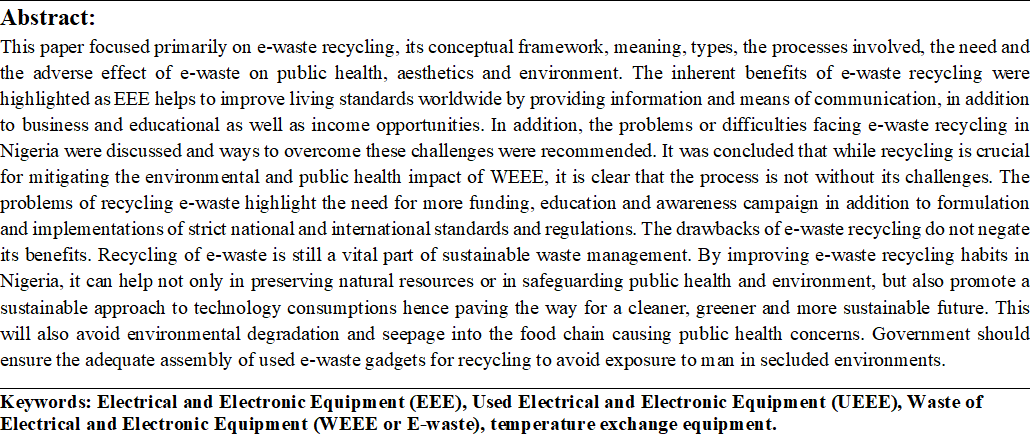
Downloads
Keywords:
E-Waste Recycling: A Sustainable Approach to Technology Consumption
Authors
Abstract
This paper focused primarily on e-waste recycling, its conceptual framework, meaning, types, the processes involved, the need and the adverse effect of e-waste on public health, aesthetics and environment. The inherent benefits of e-waste recycling were highlighted as EEE helps to improve living standards worldwide by providing information and means of communication, in addition to business and educational as well as income opportunities. In addition, the problems or difficulties facing e-waste recycling in Nigeria were discussed and ways to overcome these challenges were recommended. It was concluded that while recycling is crucial for mitigating the environmental and public health impact of WEEE, it is clear that the process is not without its challenges. The problems of recycling e-waste highlight the need for more funding, education and awareness campaign in addition to formulation and implementations of strict national and international standards and regulations. The drawbacks of e-waste recycling do not negate its benefits. Recycling of e-waste is still a vital part of sustainable waste management. By improving e-waste recycling habits in Nigeria, it can help not only in preserving natural resources or in safeguarding public health and environment, but also promote a sustainable approach to technology consumptions hence paving the way for a cleaner, greener and more sustainable future. This will also avoid environmental degradation and seepage into the food chain causing public health concerns. Government should ensure the adequate assembly of used e-waste gadgets for recycling to avoid exposure to man in secluded environments.



